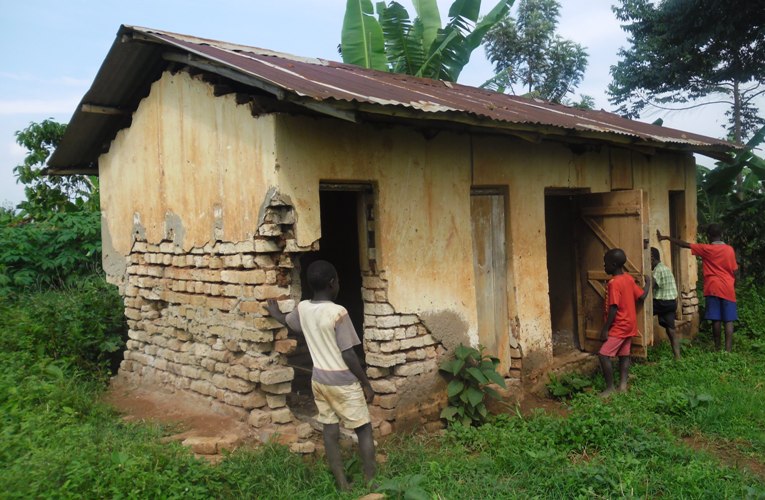The shame of not having a toilet in Uganda
Enock Twinomujuni’s wife is ‘more pleasant’ with him, he says, and that makes him happy.
The 45-year-old farmer grows Irish potatoes and pineapples in his one-acre farm in Kabale, in western Uganda.
He sells his produce in the neighbouring sub-county, or if he’s lucky, to tourists wandering by on their way to Lake Bunyonyi or to Bwindi Impenetrable National Park to spot mountain gorillas.
Keep Reading
He makes around Shs 100,000 a month.
Nothing much has changed in his life or fortunes in the past few years to affect his spouse’s equanimity.
Except for one thing: “I built a latrine at home.”
In Kabale, most residents didn’t have modern toilets in their properties.
The men would use the fields, while their families used the areas around their homes.
To get rid of the smell, women traditionally burnt banana leaves and then cleaned up the area.
After Twinomujuni built the latrine — a tiny hole in the ground in a thin-walled cabin behind the house, which cost him Shs 150,000 — his wife doesn’t have to do that any more.
But Twinomujuni confesses, love for his family wasn’t his only motivation: he feared arrest or a Shs 40,000 fine and worse, public shaming.
“Many other farmers were being shamed,” he says. “I didn’t want to be humiliated. In a way, I was left with no other choice.”
He admits, though, that he now takes much less time off work, as his seven children fall sick much less often.
Uganda has a population of 42 million.
The country loses 33 children every day to diarrhoea.
 A dilapidated pit latrine
A dilapidated pit latrine
Kabale is mostly a rural district, over 400 kilometres away from Kampala.
Incomes aren’t high — the average Ugandan rural household earns around Shs 300,000 a year compared to Shs 700,000 earned by an average urban household, according to figures from the Uganda Bureau of Statistics (UBOS).
But Kabale, with a population of around 500,000, has succeeded in getting 97% of them to build toilets, becoming the first in the country to declare itself open-defecation-free.
Seven other districts now follow the same programme.
“The credit goes to the harsh measures we took,” said Oliver Namanya, a district health officer of Kabale.
First, a field survey identified households which did not have latrines.
Next, offending households were sensitised to the dangers of poor sanitation, then given around three months to build a toilet.
If they didn’t, the man of the house was arrested, and faced a choice between a fine, two weeks in jail, or community service.
“We also put out their names in a ‘list of shame,’” Namanya said.
“We even go on radio shows to announce names of people found defecating in the open or who fail to have a latrine at home.”
In the last two years, 64 households have been fined, and hundreds featured on the list.
Not everyone uses them
The battle hasn’t been won yet, though.
Ensuring that everyone uses their latrine is the next challenge: actual usage is just 54%.
Allen Saturday, 41 and a mother of six, is happy the family has had a toilet since 2016. “Who likes cleaning all that up,” she asks.
“I did it for so many years, then my daughters helped me.”
But she isn’t sure about her husband; he’s out in their fields all day, so he must be doing his business out there.
“We are now focussing on behavioural change,” says Samuel Munduni, a government health assistant.
“We insist on making it a habit to defecate only twice, morning and night time. Our message emphasises that those who defecate more than twice are ill. We tell them to follow this for three days and the body will get used to it," he said.
Officials are spreading awareness about diarrhoea deaths among children, worm infestations, and other results of poor sanitation.
They are also promoting simple hand-washing techniques, like a soap bottle and water can hanging from a wooden frame; the can tips over slightly when a stick, connected to it with string, is stepped on.
Adopted from thehindu.com













